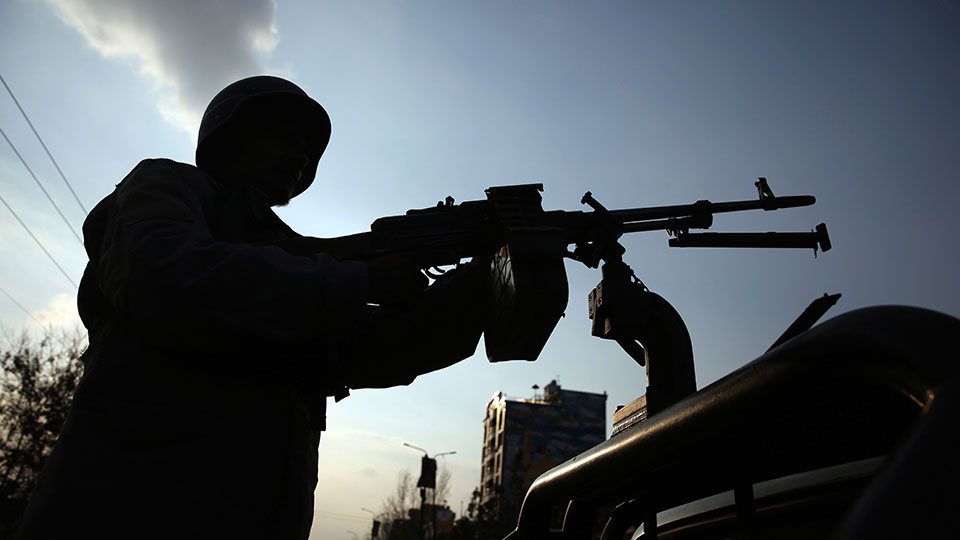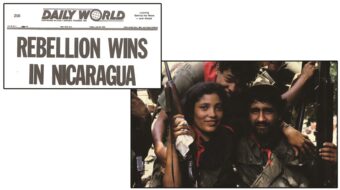
Back in the days when I was growing up (before the Vietnam War), we were told that the United States had never “lost” a war. Teachers would point to the two World Wars, the Spanish-American and Mexican-American Wars, the Civil War, and the American Revolution. The Korean War and the War of 1812 didn’t count; they were considered “ties.” The situation today, however, is very different. We can’t say that anymore. Let’s look at recent history.
The last 71 years, almost the lifetime of the average person in the United States today, has been the length of time since the beginning of the Korean War (1950) until now, the end of the war in Afghanistan. And in that time, the United States has fought four major wars—in Korea, Vietnam (and Southeast Asia), Iraq, and Afghanistan. (Not to mention other military actions in places such as the Dominican Republic, Somalia, Syria, Yugoslavia, and Grenada, among many others.)
In each instance, the reasons for U.S. intervention were based on a lie. In Korea, a country temporarily divided after World War II, the North Koreans were said to have “invaded” the other half of their own country. In Vietnam, the United States claimed that North Vietnamese ships attacked U.S. vessels in the Gulf of Tonkin. In Iraq, Washington claimed that the dictator Saddam Hussein had “weapons of mass destruction” (WMDs). In Afghanistan, the U.S. government claimed that the Taliban provided a place for the 9/11 terrorists to organize and train their cadres for the attack on the World Trade Center and the Pentagon.
All these wars…at what cost? The totals for all four, in both human and financial terms, are staggering. The loss of one human life, be it military or civilian, is a tragedy. Nor can we overlook those injured, both physically and psychologically. Not to get bogged down in statistics, but there are a few numbers from each of these conflicts that stand out.
In the Korean conflict, the number of U.S. military who died was over 36,000, with an additional 103,000 wounded. The Koreans, both North and South, suffered far greater casualties. With estimates of up to one million civilians dead, the percentage of the pre-war population who succumbed was higher than that for either World War.
The raw numbers of the Vietnam War were much higher. The total military deaths for all countries have been estimated at 1.3 million, of whom 58,000 were Americans. The number of civilians killed ranges from 627,000 to two million.
The figures of U.S. military casualties for Iraq and Afghanistan are close to 7,000. The totals of those who died fighting the U.S. military top 75,000. The civilian numbers are estimated to be 43,000 in Afghanistan and 184,000 in Iraq. The truth is that the real numbers in all these conflicts are probably much higher and will most likely never be known.
In financial terms, the costs to the United States for the four wars are as follows: – Korea: $67 billion (equivalent to $685 billion in 2021 dollars)
- Vietnam: $200 billion (or greater than $1 trillion in 2021 dollars)
- Iraq: $1.922 trillion, according to the best estimate, which is by Neta Crawford, chair of the political science department at Boston University, in her Costs of War project.
- Afghanistan: $2.261 trillion, according to the Watson Institute of International Public Affairs at Brown University. Their estimate for the overall post-9/11 “War on Terrorism” is $6.4 trillion.
And for what ends? None of these engagements can in any sense be called a military “victory.” In Korea, there was an armistice that left the country divided, with 28,000 U.S. military personnel stationed there to this day. In Vietnam, much as in Afghanistan, the United States finally admitted it could not “win” and pulled its troops out, leading to the collapse of the puppet South Vietnamese government, the victory of the national liberation forces, and the unification of the country as the Socialist Republic of Vietnam.
In Iraq, a dictator (Saddam Hussein) has been replaced by a fractured political system in a country still decimated by more than a decade of fighting. And in Afghanistan, 20 years of devastation have led to the collapse of the ineffectual U.S.-backed government.
Not only has the United States’ policy of intervention and domination wreaked havoc around the world, but it has also left a heavy impact on our society here at home. The loss and destruction of hundreds of thousands of U.S. lives over the decades have been devastating. The social costs in terms of the trillions of dollars wasted on death and destruction are incalculable. Just think how the money could have been spent on improving human life. Many of the social problems highlighted during the COVID-19 pandemic in the United States would’ve been ameliorated in many ways if the money to fight these wars had been spent on social needs.
Some commentators are trying to sort out the “lessons” we can learn from the debacle in Kabul so that the next time such a situation arises things will go smoother. The simple fact is that there should never be a “next time.” The United States should never undertake a useless war in which it takes upon itself the role of chief imperialist aggressor.
In an increasingly interdependent world, one that faces numerous challenges, the emphasis of the United States government should be one of peaceful cooperation that respects all people and works for the betterment of every human being. The people of our country must rise up and say, “enough is enough.”
It is time to end the insanity of our “forever wars.”
As with all op-eds published by People’s World, this article reflects the opinions of its author.












Comments